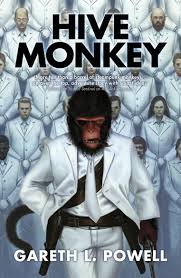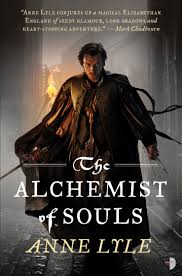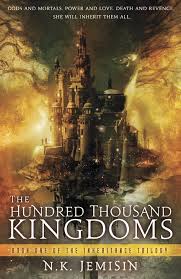Other People's Trumpets
I figure I've talked enough about how I'm shortlisted for the Gemmell Legend Award and desperately need every vote I can get so I want to highlight some excellent stuff I've read recently. I've been on something of a reading spree , mostly because I've been travelling around and that tends to give me more time for it. On this happy note, you should really think about giving a try to:
 Gareth Powell's Ack-Ack Macaque won the British Science Fiction Award for best novel (jointly with Leckie's Ancillary Justice which also won the Clarkes), and at pretty much exactly the point this was going on, I was half way through the sequel. Macaque is a justly celebrated book, innovative, filled with excitement, eminently readable and dominated by the titular simian protagonist. The plot is part Bond, part Cyberpunk, all monkey action.
Gareth Powell's Ack-Ack Macaque won the British Science Fiction Award for best novel (jointly with Leckie's Ancillary Justice which also won the Clarkes), and at pretty much exactly the point this was going on, I was half way through the sequel. Macaque is a justly celebrated book, innovative, filled with excitement, eminently readable and dominated by the titular simian protagonist. The plot is part Bond, part Cyberpunk, all monkey action.
Hive Monkey sets the Macaque against a new world threat, grander, more complex and more intriguing than the last. There's the same combination of high tech and pulp action, and if anything I enjoyed it even more than the original: as a second book, Powell has settled into the characters and the world, and the presence of the lead character from the start keeps everything nipping along swiftly, if only because Ack-Ack Macaque just doesn't wait around. Hive Monkey allows Powell to take a remarkably complex look at Macaque's character, a creature without peers or kin, created as a joke and now unleashed on the world like a hairy Frankenstein's Monster.
 I've been meaning to read some Anne Lyle for a while now, on the back of very favourable reviews from a number of quarters, and I finally had the chance to get Alchemist of Souls under my belt last weekend. I think I had been put off a little by expecting one of those insanely Byzantine factions and politics sort of historical fantasies, which I can (on a purely personal level) find a bit dry. Alchemist certainly delivers on that level (in a good way), but there is so much more to the book than that. I was well aware that Lyle knew her stuff, and she does manage to paint a picture of Elizabethan England that is rich in detail whilst not being cluttered by it — she gives us the theatre (without any more than a mention of Shakespeare, which I think is all to the good) and the court and the life of a mostly failed soldier and duellist, the protagonist Malverny. However, as we learn about her England, it's quickly clear that history has taken a few left turns along the way, because England is playing host to "Skrayling" ambassadors who are very plainly not the inhabitants of the New World that we might expect, and the mystery of the Skraylings and their overtly supernatural abilities is the backbone of the book. Lyle's ability to keep both her historical and fantastical plates spinning without clashes makes for an absorbing read.
I've been meaning to read some Anne Lyle for a while now, on the back of very favourable reviews from a number of quarters, and I finally had the chance to get Alchemist of Souls under my belt last weekend. I think I had been put off a little by expecting one of those insanely Byzantine factions and politics sort of historical fantasies, which I can (on a purely personal level) find a bit dry. Alchemist certainly delivers on that level (in a good way), but there is so much more to the book than that. I was well aware that Lyle knew her stuff, and she does manage to paint a picture of Elizabethan England that is rich in detail whilst not being cluttered by it — she gives us the theatre (without any more than a mention of Shakespeare, which I think is all to the good) and the court and the life of a mostly failed soldier and duellist, the protagonist Malverny. However, as we learn about her England, it's quickly clear that history has taken a few left turns along the way, because England is playing host to "Skrayling" ambassadors who are very plainly not the inhabitants of the New World that we might expect, and the mystery of the Skraylings and their overtly supernatural abilities is the backbone of the book. Lyle's ability to keep both her historical and fantastical plates spinning without clashes makes for an absorbing read.
The next one I can't give you a cover for, nor can you at this point in time actually go and obtain the book, so bear with me. You will recall that Kameron Hurley's God's War was up for the Clarkes, and was pleasantly full of all manner of insecty goodness. I was lucky enough to be given the chance to read an advance copy of her new fantasy, Mirror Empire, which Amazon says will be out in late August. I am, frankly, somewhat awed by what I found. You know how I am with world-building, and the importance I place on creating original fantasy worlds. What Hurley gives us a window on, in Mirror Empire, is perhaps the richest and most different fantasy setting I've ever come across. Everything has been thought through in meticulous detail to create a living, breathing setting that owes nothing at all to the usual fantasy tropes — societies, ethnicities, magic, environment, gender politics, sexuality, everything is new, and everything supports the story of a clash of cultures, worlds and magicians. This really is a superb book, and you should keep an eye out for it when it hits the shelves (/e‑readers).
 Finally, I am just finishing NK Jemisin's Hundred Thousand Kingdoms, another book that's been on my radar (and to-read shelves) for a long time. Again, I may have been a bit leery of too much complicated politics given the premise: the protagonist is summoned from her backwater home to the centre of power by her grandfather, ruler of a spiteful, bitter family that rules all the world, and gets plunged into the sort of cruel and Machiavellian court that would make Joffrey Baratheon take a step back. This is not what the book is about though; or this is not only what it's about. The ruling Arameri, amongst whose number the heroine finds herself, rule by divine right, in a very literal way, and for those who offend them, they have gods and demonson the leash, ready to enact their will. The plots that unfold in the pages mix human ambition with the schemes and desires of fallen deities, and all with Jemisin's elegance of language and plenty of games with the precise status of the narrator — the reader is constantly being subtly wrong-footed by sly afterthoughts and comments as the events are revealed. I've written before about how much I enjoy really poetic language in fantasy — writers like Peter S Beagle, Mervyn Peake, Frances Hardinge and Patrick Rothfuss. Jemisin is another of those writers who have an enviable command of the language. She also absolutely nails the non-human elements of her divine characters — trapped in human form, shaped by human wishes, and yet still they are disturbing and primal and make the hair on the back of your neck twitch. The scenes between the protagonist and Nahadoth are frankly some of the most powerful I've read in a long, long time.
Finally, I am just finishing NK Jemisin's Hundred Thousand Kingdoms, another book that's been on my radar (and to-read shelves) for a long time. Again, I may have been a bit leery of too much complicated politics given the premise: the protagonist is summoned from her backwater home to the centre of power by her grandfather, ruler of a spiteful, bitter family that rules all the world, and gets plunged into the sort of cruel and Machiavellian court that would make Joffrey Baratheon take a step back. This is not what the book is about though; or this is not only what it's about. The ruling Arameri, amongst whose number the heroine finds herself, rule by divine right, in a very literal way, and for those who offend them, they have gods and demonson the leash, ready to enact their will. The plots that unfold in the pages mix human ambition with the schemes and desires of fallen deities, and all with Jemisin's elegance of language and plenty of games with the precise status of the narrator — the reader is constantly being subtly wrong-footed by sly afterthoughts and comments as the events are revealed. I've written before about how much I enjoy really poetic language in fantasy — writers like Peter S Beagle, Mervyn Peake, Frances Hardinge and Patrick Rothfuss. Jemisin is another of those writers who have an enviable command of the language. She also absolutely nails the non-human elements of her divine characters — trapped in human form, shaped by human wishes, and yet still they are disturbing and primal and make the hair on the back of your neck twitch. The scenes between the protagonist and Nahadoth are frankly some of the most powerful I've read in a long, long time.
Okay, I know I said finally, but finally finally, I have not yet got my sweaty hands on a copy of Paul Cornell's Severed Streets, but by the sacred jockstrap of Robert E Howard, I will. I have not been shy in saying how much I loved London Falling, and the sequel is probably my most anticipated book for 2014(1).
(1) except for Seal of the Worm. That's going to be awesome, naturally. 🙂
 © 2008-2025 Pan Macmillan
© 2008-2025 Pan Macmillan
I've ordered Alchemist of Souls — hope you are happy now!